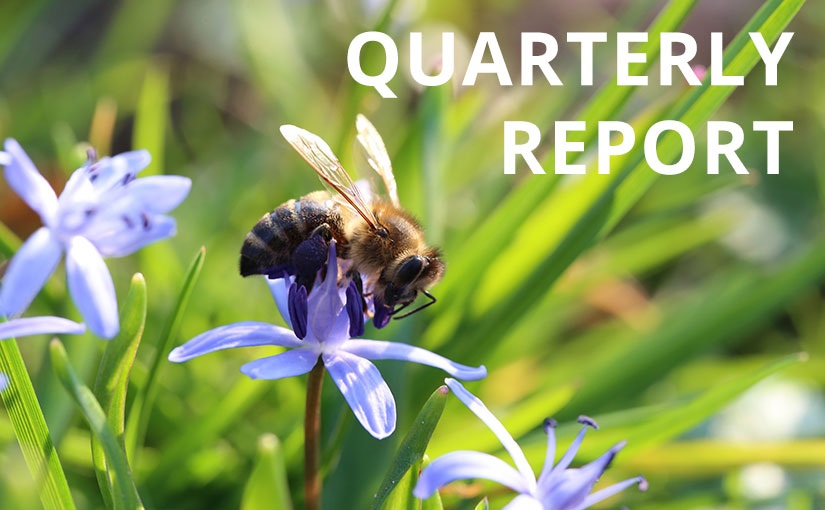For this series of entries, I will be explaining the steps I take in developing my startup during my placement year at the Northumbria Business Startup Hatchery. This entry is a reflective summary of my achievements and the difficulties I have encountered, in the form of a quarterly report. This includes identifying new skills or competencies I have acquired as well as explaining which existing ones I have applied or developed. To conclude I will end this series with a general action plan for the future, which I will use as the basis of my activities going forward.
Achievements & Difficulties
My main goal for this final quarter was to generate my first revenue. The most promising way to do so was to work towards the milestones of the Virtual Sunderland project.
I worked on communicating my ideas with my client, Northumbria University‘s VRV department, as well as their client who commissioned the work, Sunderland Council. This meant getting storyboards and draft renders complete, so we could reflect on the creative direction of the work and make adjustments as necessary. In particular, one part of the project, a site on which I had limited information, would need reworking to cover a larger area. I re-budgeted my time for this and found that I would need to seek additional help to realistically meet the client’s final deadline, at the quality level I was aiming for.
Looking at my list of contacts I knew one person, in particular, would be suited to the task. Though while initial talks went well – he had the skills, experience and time – I would find out a month later, after slowly losing touch with him, that he was unable to work on the project for personal reasons. This was an unexpected setback and has made me re-evaluate what I need to look for in a freelancer. Despite having an agreed budget with targets, as well as an open line of communication through the chat app Slack, I was unable to keep him onboard.
Prior talks with the councils Urban Design Team Leader, Idris Balarabe, led me to consider presenting the data in an interactive, VR format. However, due to the setback of losing the freelancer, I would later have to drop this to focus on another project I was offered at around that same time.
The other offer of work came later in the quarter, with Emine Thompson of Northumbria University‘s VRV department briefing me on Newcastle Council‘s Digital Economy project, part of the Great Exhibition of the North. The budget was not finalised, but I had reached a milestone on the Virtual Sunderland project, so thought little of taking the risk of increasing my workload. This would give me two paid projects that could fill a working week. However, I knew I would need a freelancer or two working on these to be able to focus on expanding my business.
Getting dedicated, reliable people to work on these projects for me. That is what I needed to address if I wish to be successful in my second goal for the quarter; building a team.
This would come to be a secondary concern, however, as once I had invoiced my client to open up funding for the payment of such help, I found myself battling to get a payment authorised. A back and forward between my client and their finance department has left me without a clear date as to when I will be paid and therefore seek those qualified to bring in to work for me.
As that remains outstanding it means that I have not been able to fully complete my objectives for the quarter. This has not dampened my spirits though, as I continue to run the business but focus on my own projects until this is resolved. However, I am very wary that outstanding accounts receivable is something that can destroy a business quickly. Therefore I have created a cash flow plan that allows me to continue working the business in the event of an unpaid debt such as this. This is one of the steps I have taken to ensure I meet and overcome the challenges and barriers to enable success; my third target.
It was one of the things I had learned from working with TyneMet College, who had been in long-term discussions with me about hosting a three day VR event. I had planned to have this done early in the quarter, with: rooms and equipment being booked; software purchased; time is given to creating custom presentations; tailoring the activities to the students skill level; testing everything in advance. I was called the weekend before the scheduled date and told that they would not be proceeding but may be interested in the next school year.
At that time I had planned to invoice payment after the event and knew when it would be paid. Receiving an unexpected cancellation made me think and act on having a plan in place that would mitigate risk in the future if I was going to be relying on a client’s payments.
Outside of this, I made sure I did not miss out on networking, events and workshop opportunities as they arose. Many of these were focused on the VR industry, such as the VRTGO events, though most were start-up oriented. I knew that I still wanted to learn from others, to avoid mistakes but also to get fresh perspectives. One such discussion at a business event led me to get additional business coaching from an established director, Stephen D. Slater of RMT Accountants & Business Advisors Ltd.
This type of one-to-one coaching has helped me understand how I can get the startup ready for investment, what kinds of people I should look to bring in to my team and how to prepare for some common pitfalls that early-stage businesses can fall into. From this, I took the steps to incorporate the business, consider a share or incentive structure and outline some basic groundwork, open a business account, etc.
All of these decisions were made with a new business model in mind. Using the business model canvas and my initiative I had worn down the problem statement, pivoted, tested, trailed and engaged all of the customer conversations and feedback I could find. The result of which was a lean business model I could act on, that focused on a variant of an open-source business model called open core.
Currently, I have commissioned artwork from a freelancer to help me gauge interest in this idea. From this work, I created a landing page which is used to capture the e-mail addresses of consumers and developers who are interested. Going forward I will be looking at the reaction to this from the industry and public, then adapting my plans accordingly.
New knowledge and skills learnt:
- Strategies to mitigate risk – how to develop a ‘risk mitigation plan’.
- Setting up an incorporated business, share types and the importance of a founders agreement.
- Different open-source software models and their uses, benefits and disadvantages.
- Managing freelancers; workloads, deadlines and negotiating pay.
Existing knowledge and skills being applied and developed:
- Creative media production: camera animation and lighting; rendering; video editing and production.
- Conducting customer conversations, primary research and developing a business model canvas from real-world feedback.
- Networking and seeking relevant contacts.
ACTION PLAN FOR THE FUTURE
- Pursue the validation of an open-core video games company.
- Build a team willing and able to grow the business.
- Publish a polished prototype which can be used to attract investment.


